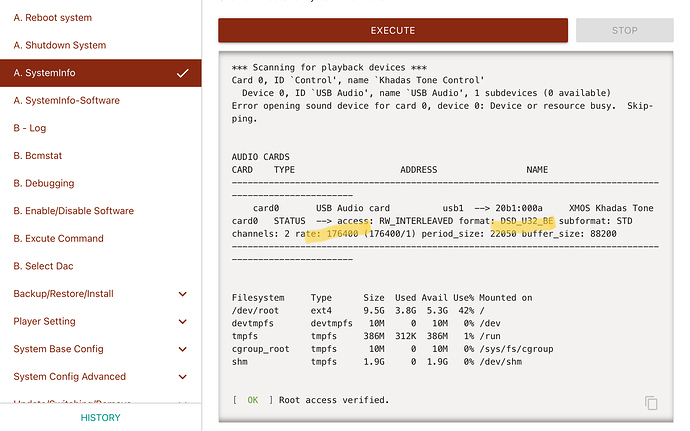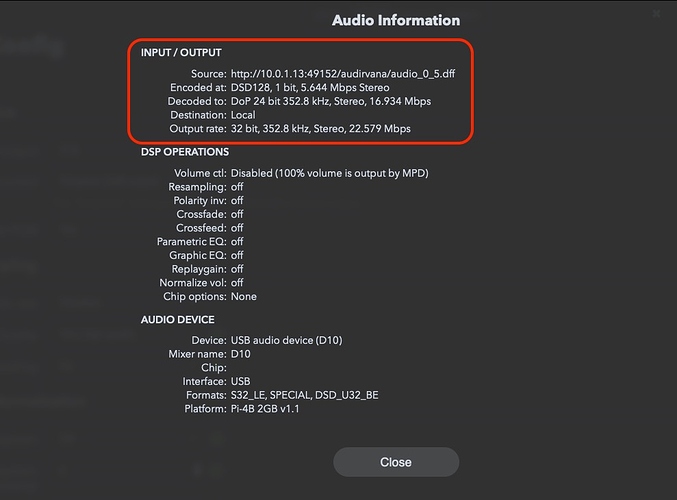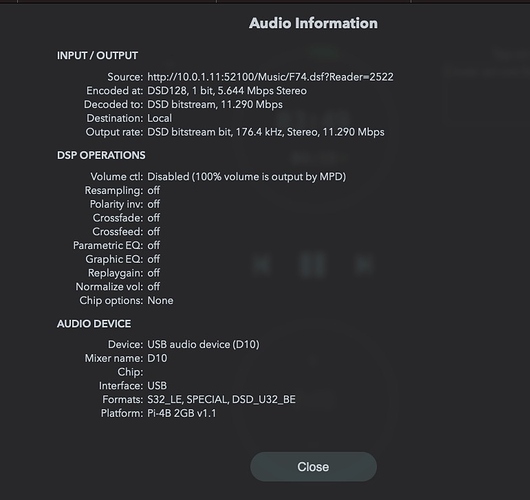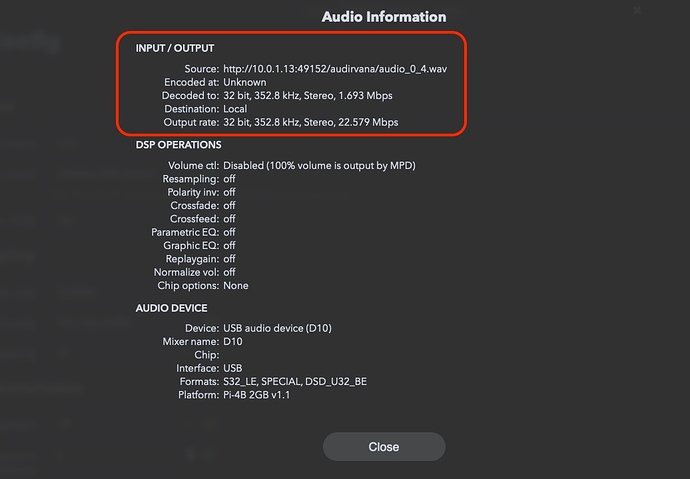Please, I am not at all interested in a back and forth regarding whether or not one can hear any difference, and I am not claiming in any way that DoP doesn’t sound good, completely not the issue. I am merely stating that the DSD256 album I have can’t be played on several of my DACs through Audirvana as anything but 352.8 kHz PCM.
I have several different DACs, and they can and do play DSD256 as a native bitstream, evidenced by both the DAC’s sample rate display, and also the Renderer software’s (Moode) Audio Info pane.
This is true of JRiver servers running on either Linux, or macOS, both show 11.2MHz sample rate and bitstreaming (no DoP). While I appreciate the link provided above to the JRiver forum, I believe it is old information, or simply incorrect as of right now. I absolutely see JRiver on both Linux or macOS servers outputting native DSD256 (bitstreaming) as reported by Moode’s Audio Info pane.
However, when trying to use Audirvana as a server in the same way, the stream is being transcoded to 352.8kHz PCM for some reason. The two DACs that display that are a Topping D10, and a Khadas Tone Board. Each of them only supports PCM up to 384 kHz, so they can’t do DoP256, only DoP128, however that is not whats being sent according to the Audio info pane in Moode, it’s 352.8kHz PCM, and the DAC display on the D10 confirms that, however with the Khadas DAC there is no display so this can only be observed in the Moode software’s Audio Info pane.
The other DAC that also tops out at 384 kHz PCM is a SIMAUDIO Moon 280D, but that renderer is not a Moode-based RPi, it is a Sonore microRendu.
So if JRiver is truly DoP only (I don’t think it is), then the Moode software is misreporting that it is native/bitstreaming when it is not. For comparison, when I play a DSD128 album with Audirvana over UPnP and look at that Moode Audio Info pane, it clearly states DoP encapsulation as 176.4kHz PCM frames and DoP128. The same is not true of DSD256 however, there is says simply 352.8 kHz PCM is what Moode receives, and the DAC display agrees.
I know, a bunch of moving parts here, but the basic question is why does DSD output over UPnP with Audirvana need to be saddled with DoP?




